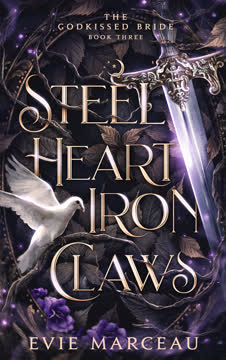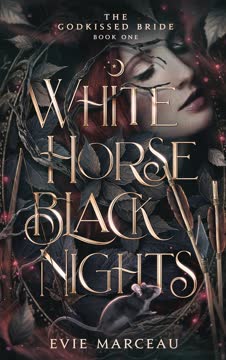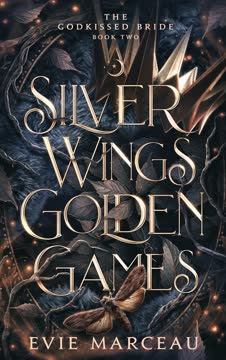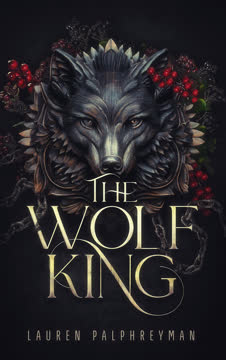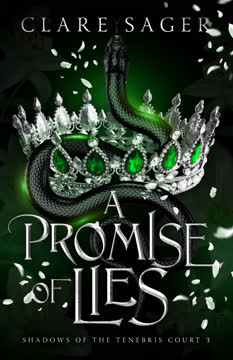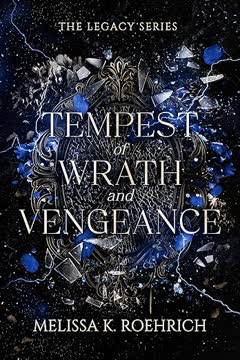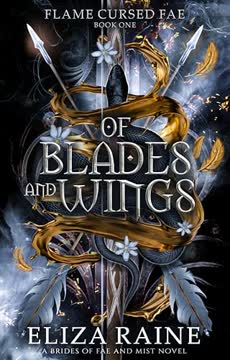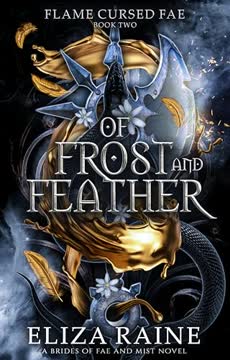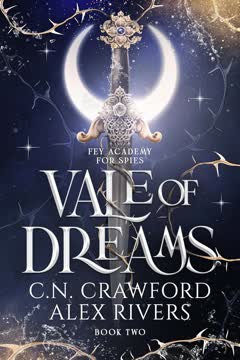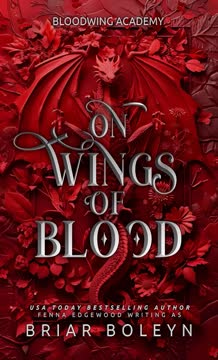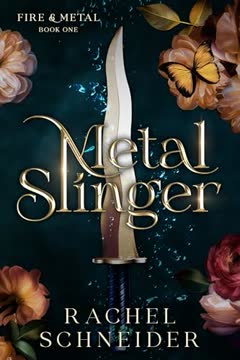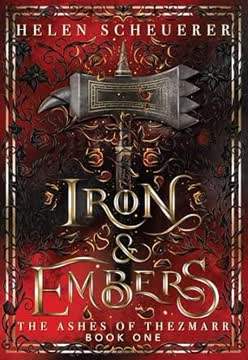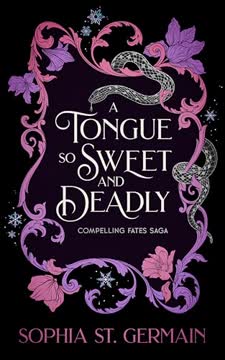Plot Summary
Shattered Memories, Shifting Loyalties
Basten, once a fierce warrior and loyal friend, awakens to a world where his memories are fractured and his sense of self is under siege. At a funeral, he's haunted by a void where something—someone—should be. The people around him, especially Rian and Suri, speak of a woman named Sabine, a fiancée he cannot recall. The pain of forgetting is physical, a wound that throbs with every mention of her name. As panic and confusion mount, Basten's instincts drive him to violence and flight, but the truth is more insidious: his memories have been stolen by Immortal Iyre, a fae goddess newly awakened. The world is shifting, and Basten's place in it is uncertain, his loyalty tested by the secrets and betrayals that swirl around him.
Fae Awakening, Human Fears
Sabine is ripped from Basten's side by Iyre, who drags her through a fae portal into the heart of the wild, ancient kingdom of Volkany. The land is alive with magic and danger, and Sabine's godkissed ability to speak to animals is both a gift and a curse. Iyre's power is absolute—she can erase memories, command obedience, and threaten Sabine with the loss of everything she loves. Yet Sabine's spirit is unbroken. She finds allies among the creatures of the forest and plots her escape, even as the fae's return sends shockwaves through the human world. The old stories are coming to life, and the boundaries between mortal and immortal, love and loyalty, are blurring.
The Vanished Bride
Back in Astagnon, Basten's absence and Sabine's disappearance spark rumors and unrest. The city is gripped by fear as news spreads of the fae's awakening and the mysterious events at the border. Rian, now king, is both threatened and emboldened by the chaos, while Suri and others search for answers in ancient texts and forbidden lore. Basten, haunted by dreams of a woman he cannot remember, is drawn into political intrigue and family betrayal. The lines between friend and foe, truth and deception, grow ever more tangled as the kingdom prepares for war and the search for Sabine becomes a race against time.
Into the Fae Wilds
Sabine endures a brutal trek as a prisoner of Iyre and the Volkish army, chained and forced to ride a monstrous goldenclaw. The wilds of Volkany are both beautiful and deadly, filled with magical beasts and sentient plants. Sabine's resilience is tested, but her connection to animals and her indomitable will help her survive. She forms a wary alliance with Captain Tatarin, a godkissed mage, and learns that her fate is tied to ancient prophecies and the ambitions of gods and kings. The journey is a crucible, forging Sabine's resolve to reclaim her freedom and her love, even as the fae's true intentions remain shrouded in mystery.
The Price of Forgetting
Basten, tormented by the void where Sabine's memory should be, searches for meaning in dreams, letters, and the scent of violets that lingers on his belongings. His loyalty to Rian is tested as old secrets come to light and new alliances are forged. The city is on edge, and Basten's own sense of self is unraveling. He is offered power, temptation, and the chance to reclaim his past, but every step forward is shadowed by the pain of what he cannot remember. The cost of forgetting is steep, and the path to redemption is fraught with danger and betrayal.
Schemes and Sacrifices
As Basten and Sabine navigate their separate prisons—one of chains, the other of memory—they are caught in the web of political machinations and fae bargains. Rian's ambition drives him to betray those closest to him, while Sabine's father, King Rachillon, reveals himself as more than a mere mortal. The fae court is awakening, and with it, the old rules no longer apply. Sacrifices must be made, and the price is often paid in blood. Sabine's past and Basten's future are inextricably linked, and both must decide what they are willing to lose to win the freedom to love.
The Court of Masks
Sabine is thrust into the heart of the fae court, where nothing is as it seems. The gods walk in human guise, their true natures revealed only in moments of crisis or cruelty. Sabine's lineage and power make her both a prize and a threat, and she must navigate a world of shifting allegiances and dangerous games. The court is a place of beauty and horror, where pleasure and pain are two sides of the same coin. As Sabine uncovers the truth about her parents, her own identity, and the fae's plans, she realizes that survival depends on her ability to play the game better than the gods themselves.
Chains, Bargains, and Betrayals
Basten's journey brings him to the border of Volkany, where he must outwit soldiers, magical beasts, and the fae themselves to reach Sabine. Their reunion is fraught with danger, as old wounds and new threats converge. The fae bargains that bind them are as unbreakable as iron, and every promise comes with a hidden cost. Betrayal is everywhere—among friends, family, and even within their own hearts. As Basten and Sabine fight for each other, they must also fight the parts of themselves that would give in to despair or vengeance.
The Monoceros Unleashed
The legendary monoceros, Tòrr, becomes both a symbol of power and a catalyst for chaos. Basten's bond with the beast is tested as they flee pursuit and face the dangers of the wild. The monoceros's destructive potential is matched only by its loyalty to those who earn its trust. As war looms, the line between weapon and ally blurs, and the fate of kingdoms may rest on the choices of a single man and a single beast. The unleashing of Tòrr is both a declaration of war and a desperate bid for survival.
Bloodlines and Broken Promises
Sabine's true parentage is revealed—she is the daughter of King Rachillon, who is himself the immortal Vale, King of Fae. The revelation shatters her sense of self and her place in the world. The fae's need for human blood and sacrifice is laid bare, and Sabine must confront the reality that her life has always been a pawn in a larger game. Basten's claim to the Astagnonian throne is confirmed, but the crown is as much a curse as a blessing. Promises are made and broken, and the future is as uncertain as the past is painful.
The Fated Lovers' Curse
Basten and Sabine's love is both their greatest strength and their greatest vulnerability. The fae court sees them as the reincarnation of the Fated Lovers, destined to suffer and to change the world. Their bond is tested by memory loss, betrayal, and the machinations of gods and men. Yet, even as the world conspires to keep them apart, their love endures—fierce, flawed, and unbreakable. The curse of the Fated Lovers is not just to love, but to fight for that love against impossible odds.
The Game of Thrones
The struggle for the Astagnonian throne intensifies as Basten, Rian, and the fae court maneuver for advantage. Alliances shift, and every move is a gamble with lives and kingdoms at stake. The fae's awakening changes the rules, and the old order is swept away by new ambitions and ancient grudges. Basten must decide whether to claim the throne, and at what cost. Sabine's freedom and the fate of the world hang in the balance as the game becomes ever more deadly.
The Night Hunt Begins
Artain, God of the Hunt, challenges Basten to a fae game: the Night Hunt. Sabine is the prize, and the rules are as cruel as they are binding. The hunt is a test of skill, will, and love, with Sabine's freedom and Basten's life at stake. The forest becomes a battleground, and every ally and enemy is revealed for what they truly are. The Night Hunt is more than a game—it is a crucible that will forge or destroy the Fated Lovers.
Predator and Prey
Sabine, using her godkissed power, turns the tables on her pursuers. She commands animals, sets traps, and outwits gods and men alike. The line between predator and prey blurs as Sabine fights not just for her own survival, but for Basten's as well. The hunt is brutal, and the cost is high—innocent lives are lost, and the true nature of the fae is revealed in all its beauty and horror. In the end, Sabine's greatest weapon is her refusal to be anyone's victim.
The Cost of Victory
The Night Hunt ends in chaos and violence. Sabine and Basten, both wounded and exhausted, must make impossible choices. The fae's bargains are as binding as ever, and the price of victory is steep. Sabine's cunning and Basten's sacrifice win them a fragile freedom, but the scars—physical and emotional—will not heal easily. The gods are not defeated, only delayed, and the future is as uncertain as ever.
The Sacrifice of the Golden Child
Just as Sabine and Basten prepare to claim their freedom, Vale reveals his true purpose: Sabine is to be sacrificed, her blood the key to awakening the full power of the fae. The ancient tale of the Golden Child is reenacted, and Sabine's trust is shattered by her father's betrayal. Basten's grief and rage threaten to consume him, and the world teeters on the brink of destruction. The cost of love, loyalty, and power is paid in blood, and the consequences will echo through eternity.
Death, Rebirth, and Vengeance
Sabine's death is not the end, but a beginning. The world is shaken by storms, earthquakes, and the fury of gods and mortals alike. Basten, broken by loss, is forged anew by vengeance and love. The fae court is divided, and the balance of power is forever changed. As Sabine's fate hangs in the balance, the stage is set for a new war—a war of gods and kings, love and vengeance, memory and destiny. The story ends on the cusp of transformation, with the promise that nothing will ever be the same.
Characters
Basten Bowborn
Basten is a man defined by loss and loyalty. Once a street rat, then a soldier, and now the rightful heir to the Astagnonian throne, he is both powerful and vulnerable. His godkissed senses make him a formidable hunter and fighter, but his greatest strength is his capacity for love and sacrifice. The theft of his memories by Iyre leaves him adrift, torn between the man he was and the man he must become. His relationship with Sabine is the anchor that keeps him from losing himself entirely, even when he cannot remember her. Basten's journey is one of self-discovery, redemption, and the willingness to pay any price for love. His loyalty is both his greatest virtue and his greatest flaw, binding him to friends and lovers even when it leads to betrayal and pain.
Sabine Darrow
Sabine is a woman forged in hardship and hope. Born of both human and fae blood, she is marked by her ability to speak to animals and her indomitable will. Her childhood in a convent was one of neglect and abuse, but she emerged with a fierce sense of justice and a longing for freedom. Sabine's journey is one of self-acceptance and empowerment, as she learns to wield her gifts and navigate the treacherous world of gods and kings. Her love for Basten is both a source of strength and vulnerability, driving her to acts of courage and sacrifice. Sabine's greatest fear is to be forgotten or used, but her greatest triumph is her refusal to be anyone's victim. She is both the hunted and the hunter, the pawn and the queen.
Rian Valvere
Rian is a man torn between ambition and loyalty. Raised in a family of vipers, he learned early to trust no one and to use everyone. His friendship with Basten is genuine, but it is always secondary to his desire for power. Rian's betrayal of Sabine and Basten is both a calculated move and a desperate act, born of fear and pride. He is both a victim and a perpetrator, shaped by the violence and cruelty of his upbringing. Rian's greatest strength is his ability to adapt and survive, but his greatest weakness is his inability to truly love or trust. He is a tragic figure, doomed by his own choices and the world that made him.
Vale / King Rachillon
Vale is the embodiment of fae power—ancient, inscrutable, and ruthless. As both Sabine's father and the King of Fae, he is torn between love and duty, but his love is always conditional, always secondary to his quest for power. Vale's willingness to sacrifice his own daughter for the awakening of the fae is both horrifying and inevitable, a reflection of the fae's alien morality. He is a master manipulator, capable of great tenderness and greater cruelty. Vale's relationship with Sabine is a twisted mirror of the fae's relationship with humanity—protective, possessive, and ultimately destructive.
Immortal Iyre
Iyre is the fae goddess whose power lies in the theft and manipulation of memory. She is both a tormentor and a teacher, forcing Sabine and Basten to confront the truth of their own hearts. Iyre's cruelty is matched only by her cunning, and her actions set the entire story in motion. She is a symbol of the fae's capriciousness and the danger of forgetting—both oneself and one's past. Iyre's relationship with Sabine is one of rivalry and twisted mentorship, while her theft of Basten's memories is both a curse and a catalyst for growth.
Artain
Artain is the fae god who delights in the chase, both literal and metaphorical. He is a rival to Basten, a threat to Sabine, and a symbol of the fae's predatory nature. Artain's games are deadly, and his pride is both his strength and his undoing. He is charming, dangerous, and ultimately self-destructive. Artain's obsession with Sabine is both personal and political, a way to assert dominance over both mortals and his fellow gods. His defeat is a victory for humanity, but his threat lingers.
Captain Tatarin
Tati is a rare figure of compassion and pragmatism in a world of extremes. As a godkissed mage with the power to freeze time, she is both a tool of the fae and a potential ally to Sabine. Tati's loyalty is to her own sense of justice, and she is often caught between duty and conscience. Her relationship with Sabine is one of mutual respect and growing friendship, and her actions often tip the balance in moments of crisis. Tati is a reminder that not all power corrupts, and that even in a world of gods, humanity endures.
Suri Darrow
Suri is Sabine's stepmother and one of her few true allies. Her own history of suffering gives her a deep empathy and a fierce loyalty to those she loves. Suri's intelligence and resourcefulness make her a valuable ally, and her willingness to challenge authority is both a strength and a danger. She is a bridge between worlds—noble and common, human and godkissed, past and future. Suri's friendship with Sabine is a source of hope and healing, and her determination to uncover the truth is a driving force in the story.
Folke
Folke is a man who has learned to survive by his wits and his fists. His friendship with Basten is forged in hardship and mutual respect, and his skills as a spy and thief are invaluable in the struggle against the fae and the corrupt human court. Folke's loyalty is hard-won but unshakeable, and his humor and pragmatism provide a counterpoint to the story's darkness. He is a reminder that even in a world of gods and kings, the common man can make a difference.
Tòrr
Tòrr is more than a magical beast—he is a force of nature, a symbol of the power that lies beyond human control. His loyalty to Sabine and Basten is earned, not given, and his destructive potential is both a blessing and a curse. Tòrr's presence in the story is a constant reminder of the thin line between ally and enemy, and the dangers of wielding power without understanding its cost. He is both a weapon and a companion, a creature of myth made real.
Plot Devices
Memory as Weapon and Wound
The central plot device of the novel is the theft of Basten's memories by Immortal Iyre, which serves as both a literal and metaphorical wound. Memory is not just a personal loss, but a tool of control and a source of power. The struggle to reclaim lost memories mirrors the larger struggle for identity, agency, and love. The manipulation of memory is echoed in the fae's ability to rewrite reality, and the danger of forgetting—oneself, one's past, one's love—is a constant threat. The narrative structure alternates between Basten and Sabine's perspectives, using foreshadowing and parallelism to heighten the sense of loss and longing. The use of fae bargains, with their unbreakable rules and hidden costs, adds layers of tension and inevitability, while the recurring motif of the Fated Lovers' tale provides both hope and warning.
Analysis
Steel Heart Iron Claws is a dark, lush, and emotionally charged fantasy that explores the boundaries between love and power, memory and identity, humanity and divinity. At its core, the novel is a meditation on the cost of survival in a world where every promise is a potential trap and every act of love is a rebellion against fate. The story interrogates the nature of loyalty—how it can be both a virtue and a vice, binding us to those who would betray us as easily as those who would save us. The fae, with their seductive beauty and casual cruelty, are both a metaphor for trauma and a literal force of chaos, challenging the characters to define themselves in opposition to the gods. Sabine and Basten's relationship is the heart of the novel, a testament to the power of love to endure even when memory fails and the world conspires to keep them apart. The novel's use of memory as both weapon and wound is particularly resonant in a modern context, where the struggle to hold onto one's truth in the face of manipulation and erasure is all too familiar. Ultimately, Steel Heart Iron Claws is a story about reclaiming agency, forging new identities from the ashes of the past, and daring to hope for a future that is not dictated by gods or kings, but by the choices of those who refuse to be broken.
Last updated:
Review Summary
Steel Heart Iron Claws receives mostly positive reviews, with readers praising its emotional depth, plot twists, and world-building. Many love the romance between Sabine and Basten, though some find the memory loss trope frustrating. The book's cliffhanger ending leaves readers eagerly anticipating the next installment. Critics note pacing issues and character inconsistencies. Overall, fans of the series find it a thrilling continuation, while others feel it doesn't live up to the previous books' standards.
